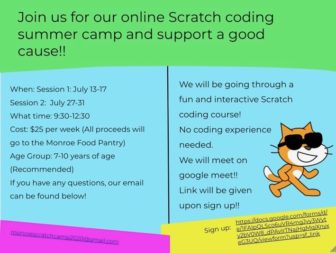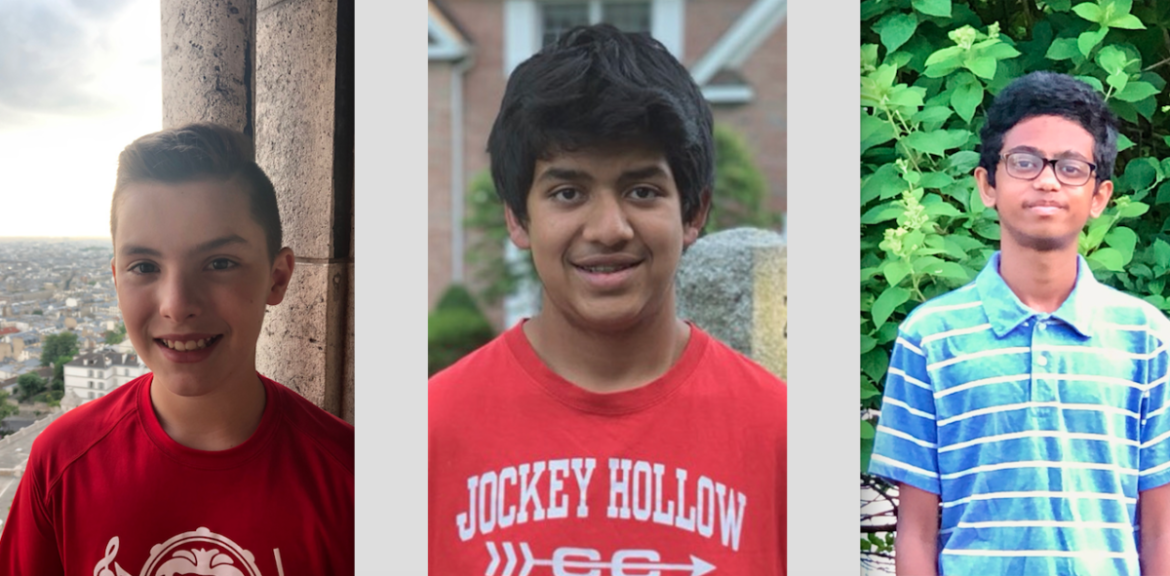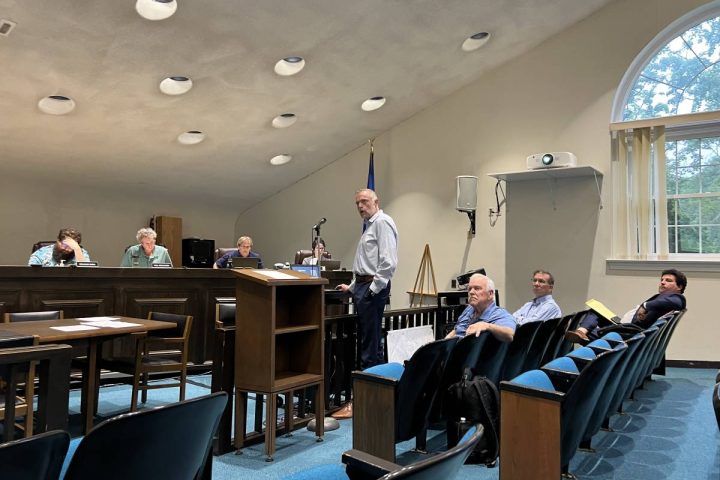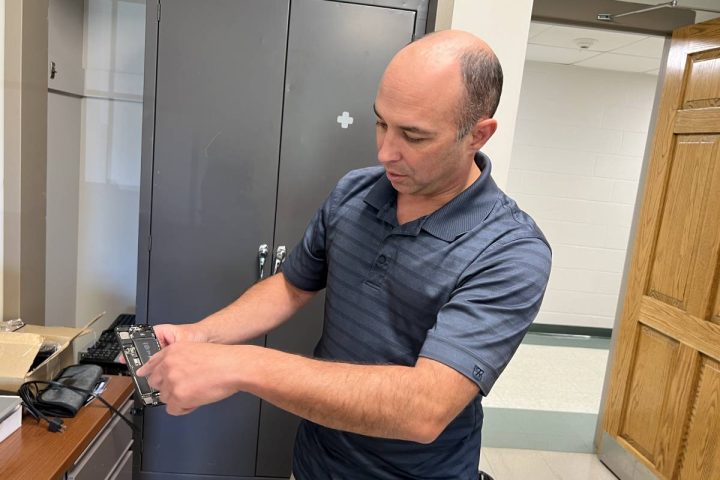MONROE, CT — High-tech met high need as local teens began an online, beginner coding camp Monday to inspire the next generation of programmers and raise money for the Monroe Food Pantry.
Rising Masuk freshmen, Bhuvan Hospet, Ben Londono and Anish Sharma, created Scratch Summer Camp in response to the financial impact of the COVID-19 pandemic. The camp costs $25 per camper and, so far, they raised $500 for the Monroe Food Pantry.
“We want to help out the community during this difficult time. So many people have been laid off due to the pandemic, and so many people are struggling to get necessities,” Sharma said. “All the proceeds that we get from this camp will be donated to the Monroe Food Pantry.”
Food Pantry Coordinator Kathleen Turner said the $500 will provide 123 meals for families in need. Turner said the Food Pantry saw a 10 percent increase in new families as a result of the pandemic.
The pantry needs staples such as instant potatoes, pancake mix, juice, egg noodles, jelly, peanut butter and coffee, according to Turner. Those interested in donating can do so through the town website.
“The biggest thing we saw was that a lot of the families who come to us started coming to us multiple times per month,” Turner said. “The town doesn’t contribute the food; it’s the community that does. So any time we get donations, it really is a big community effort. We really appreciate whenever people take the initiative to do things like this.”
Scratch Summer Camp
 Designed as an introductory course to coding, the Scratch Summer Camp targets students entering grades three through five, but can accommodate aspiring coders of any age.
Designed as an introductory course to coding, the Scratch Summer Camp targets students entering grades three through five, but can accommodate aspiring coders of any age.
The camp is five days long and runs from 9:30 a.m. to 12:30 p.m each day with two sessions: July 13 through 17 and July 27 through 31. Registration remains open at this link. Anyone with questions can email [email protected].
Campers will learn to code on Scratch, a free, online coding platform that does not require software downloads. All campers need is a computer and a working internet connection.
“Coding teaches so many skills that aren’t taught in many schools. It teaches logical thinking [and] creative thinking,” Hospet said. “In Scratch, you can create your own characters, you can create your own animations, you can create your own games, and you can always put a twist or spin on it in a way that can make it your own.”
Through a series of projects, campers will start out designing Scratch animations and end the camp with their own interactive game. Hospet, Londono and Sharma will teach through Google Hangouts.
“We’ll be talking and sharing our screen, just walking them through everything that we’re teaching them. Obviously, it’s not going to be the same as a classroom setting, but we’re going to try to make it as interactive as possible,” Londono said. “It’s perfectly fine if you have no knowledge of coding. We’re taking it step-by-step, so you start with the most simple stuff and work your way up.”
At the end of the program, campers will receive extra material to review key concepts and continue to learn. Hospet, Londono and Sharma said they hope campers leave with a greater interest in coding and will feel motivated to expand their knowledge into professional coding languages such as C++, Java and Python.
“Starting coding now is so beneficial because computers, coding, it’s going to become so much more important in our world with all this automation and robotics,” Hospet said. “Giving people a start, and helping them find a passion for coding is definitely important so that we can end up with more coders in the future.”






